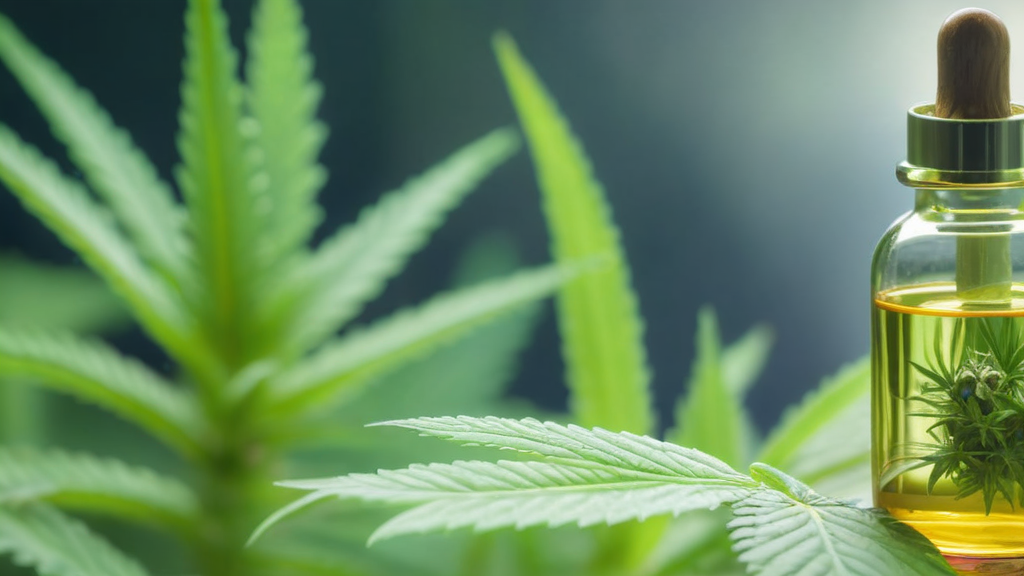What is CBD and why is it in fashion?
CBD or cannabidiol is one of the bioactive components found in the medicinal plant Cannabis sativa L. Together with THC or tetrahydrocannabinol, they are the most studied cannabinoids for their possible therapeutic applications. However, unlike THC, CBD does not have psychotropic effects, that is, it does not alter consciousness, mood or perception. For this reason, it has become the main ingredient in many products such as oils, creams, balms or anti-aging elixirs. But what is true about its properties? Is it safe to use? Let’s see what science says about it.
What effects does CBD have on the body?
CBD is a complex molecule that acts on different receptors, enzymes, nuclear factors and transporters in the human body. This gives it a variety of pharmacological actions, including anti-inflammatory, analgesic, anti-epileptic and anti-psychotic. These effects have been demonstrated in various scientific studies, both in animals and humans.
The reason CBD is not psychotropic is because it has a very low affinity for cannabinoid receptors, which are responsible for the effects of THC. However, CBD can modulate the activity of these receptors, which could enhance or attenuate the effects of THC, depending on the dose and ratio of both cannabinoids.
What is CBD used for and how is it marketed?
CBD has been used to treat various medical conditions, such as epilepsy, chronic pain, anxiety, schizophrenia or inflammation. However, clinical evidence in humans is limited and inconclusive, so further research is required to confirm its efficacy and safety. Additionally, CBD can interact with other medications, which can pose a health risk to patients.
In the European Union, CBD is only sold as a medicine in the form of an oral solution (Epidyolex), for the treatment of some types of refractory epilepsy. It is also marketed as a cosmetic product without therapeutic indication, to be applied to the skin. In this case, it is assumed that CBD does not penetrate the body and only acts locally. However, some people use these products inappropriately, using other routes of administration or high doses, which can have adverse consequences. The use of CBD as a food supplement is not allowed in Spain, but it is in other countries such as the United States, where it can be found in the form of capsules, gummies or infusions.
What precautions should be taken with CBD?
CBD is not a harmless substance and can have side effects, especially if used as a drug. Some of the most common adverse effects are loss of appetite, drowsiness, fatigue, diarrhea, irritability, or respiratory and urinary infections. Additionally, CBD is metabolized in the liver and can interfere with the body’s detoxification system, which can alter the levels of other medications in the blood. This can increase or decrease its effectiveness and toxicity, which can be dangerous to your health. For example, CBD can interact with antiepileptic medications, anticoagulants or immunosuppressants, among others.
It must also be taken into account that CBD may contain traces or remains of other cannabinoids, such as THC, which does have psychotropic effects and can give a positive result in an anti-doping test. The World Anti-Doping Agency only allows the use of pure CBD, but not other cannabinoids. Therefore, athletes must be careful with the products they use and how they use them, since they may contain broad spectrum CBD (with other cannabinoids but without THC) or full spectrum CBD (with other cannabinoids including THC).
What future awaits CBD?
CBD is a substance with great pharmacological potential, which could have applications in the field of human and veterinary health. However, there are still many unknowns about its mechanism of action, its effectiveness, its safety and its regulation. Therefore, more scientific studies are needed to provide solid and reliable evidence about its benefits and risks. Likewise, clear and harmonized legislation is required that establishes the quality, purity and labeling criteria for products containing CBD. Only in this way can the responsible and safe use of this interesting molecule be guaranteed.
